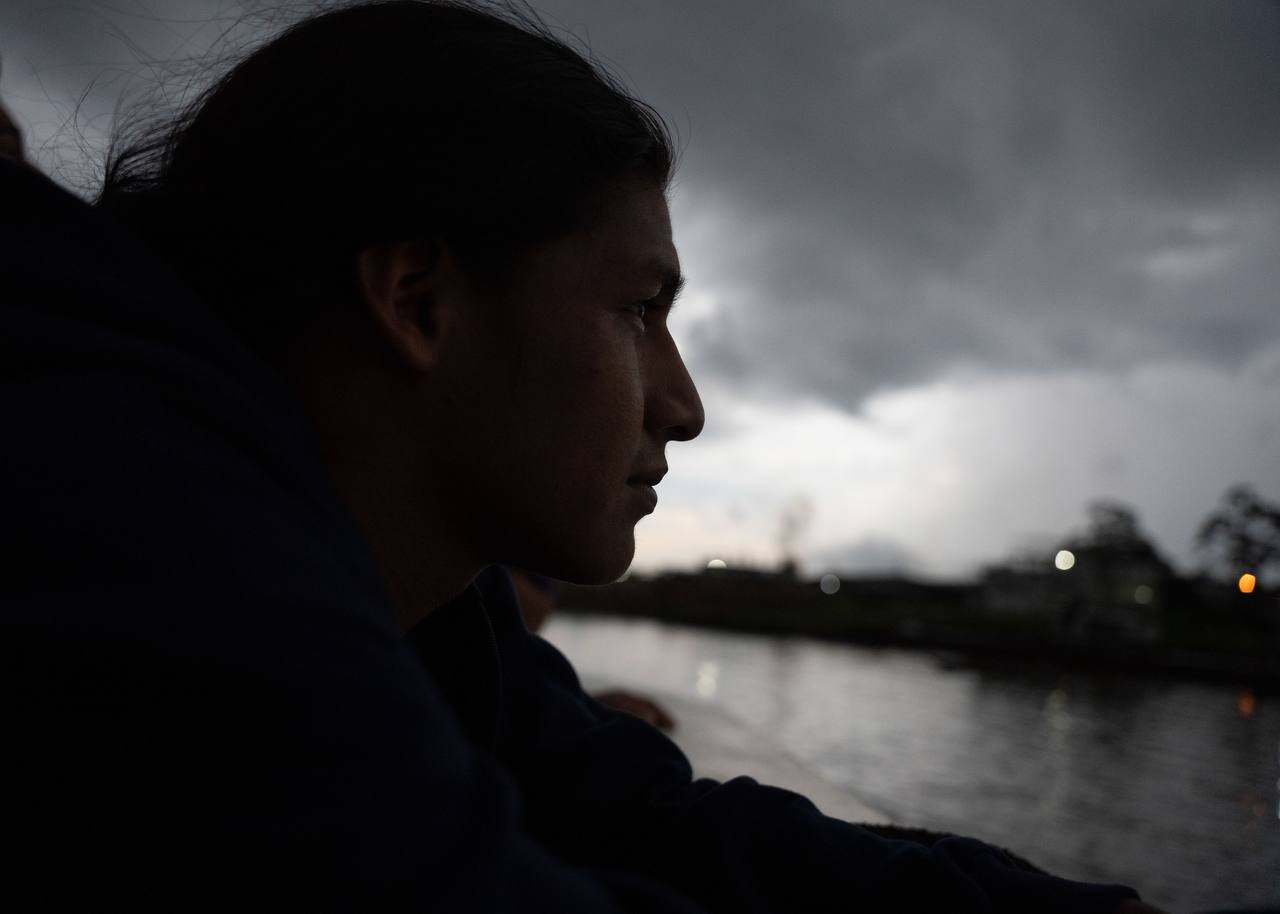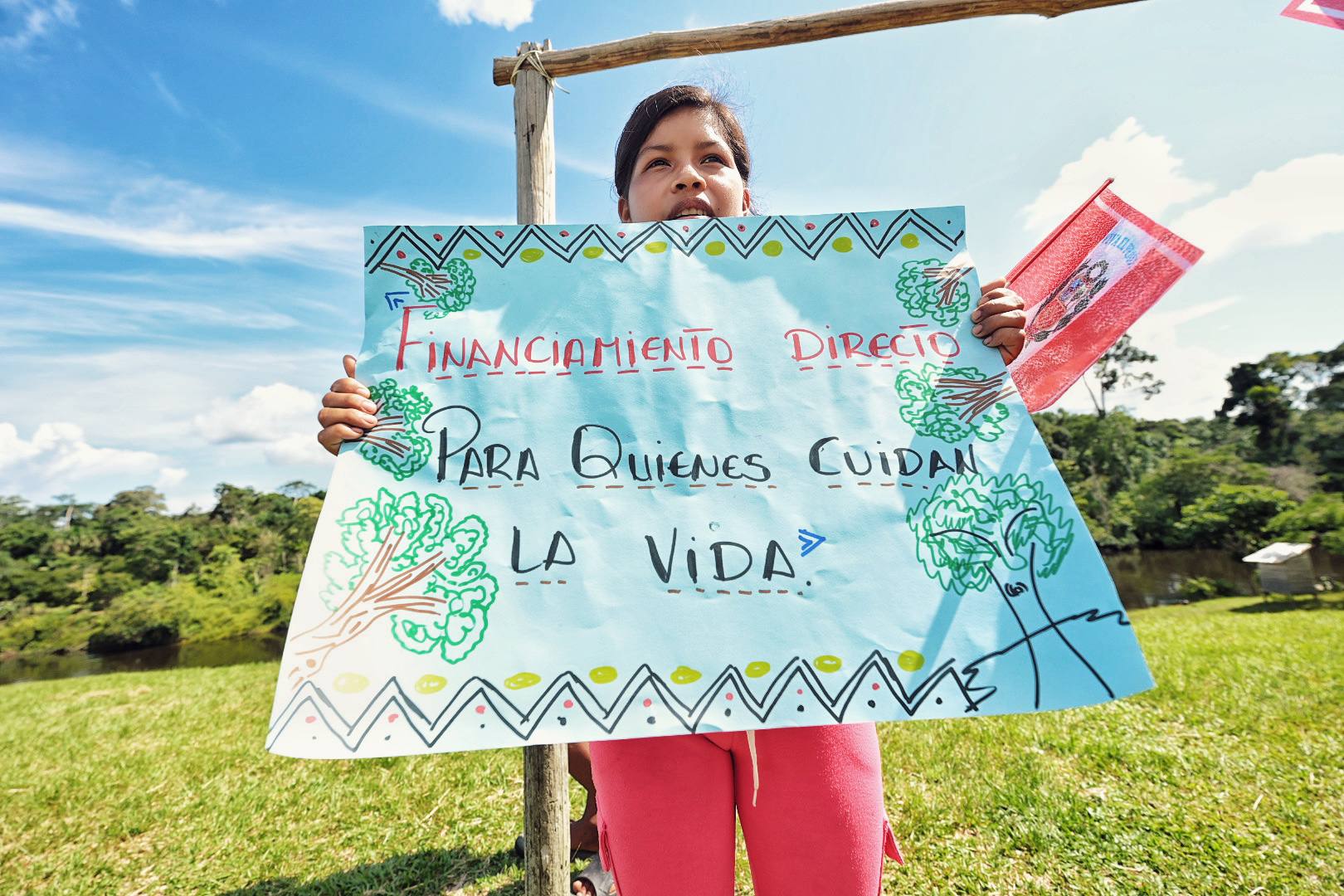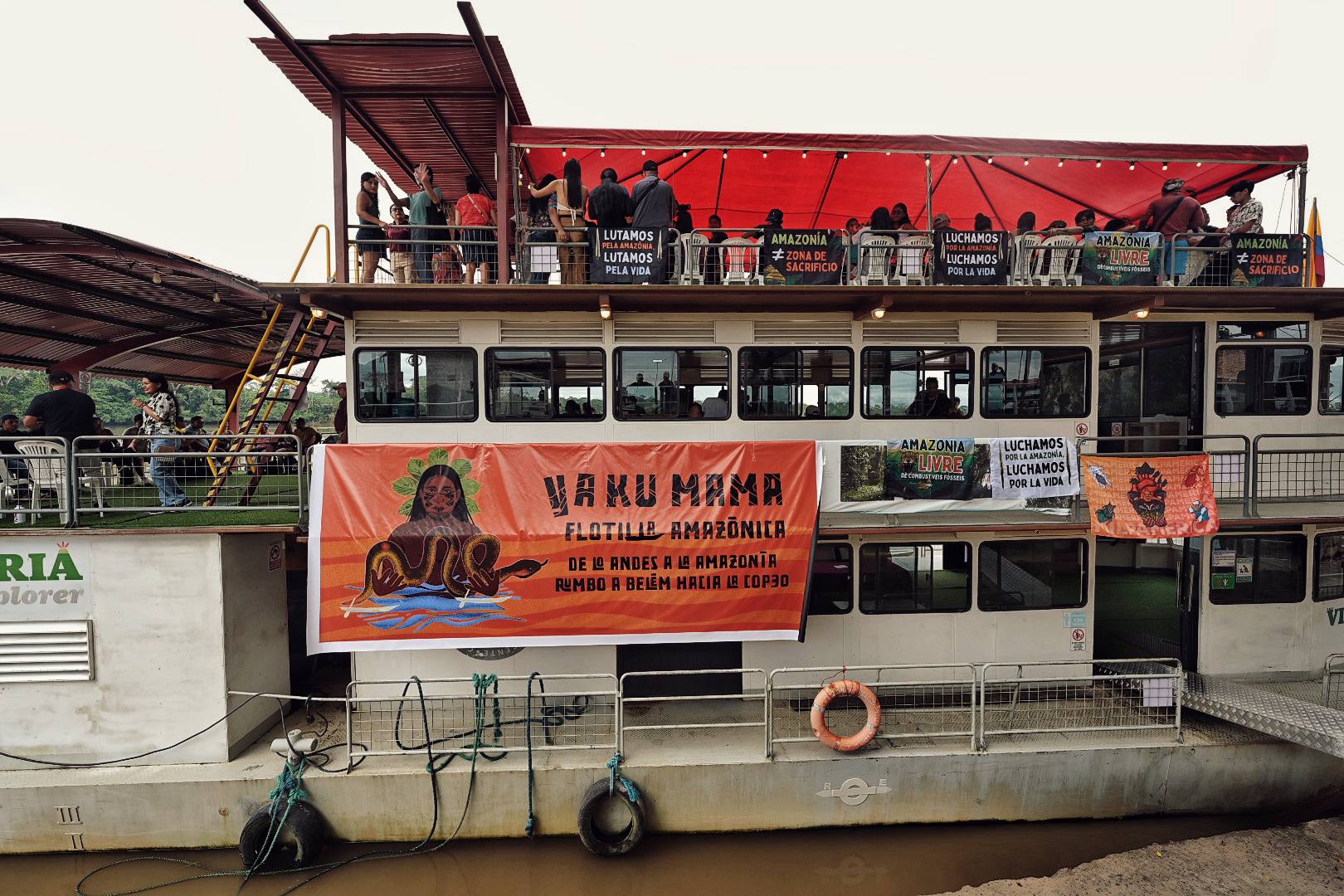
Indigenous Flotilla Yaku Mama Begins Its Journey to COP30 in Defense of Climate Justice
Unindo os Andes à Amazônia, conheça a tripulação que reúne 60 organizações territoriais e já navega rumo a Belém.
In a symbolic act of resistance that reverses the colonial route of Francisco de Orellana in 1541, the Amazonian Flotilla Yaku Mama set sail on October 16, 2025, from the city of Coca (Francisco de Orellana, Ecuador), bound for Belém, Brazil — a 3,000-kilometer journey along the Amazon River.
Led by Indigenous peoples, territorial organizations, and international allies, the expedition of 50 delegates calls for an end to fossil fuel extraction in the Amazon and for a just energy transition, highlighting the human and environmental costs of extractivism. Representing a diverse coalition from nine countries — Guatemala, Mexico, Panama, Colombia, Ecuador, Peru, Brazil, Indonesia, and Scotland — the flotilla positions the region as the epicenter of the global climate struggle, just weeks ahead of COP30.
The Historical Context and Objectives of the Flotilla
Yaku Mama, meaning “Mother of Waters” in Quechua, is more than a river journey — it is an act of Indigenous empowerment that honors the continental uprising of 1992 and denounces the colonial roots of the climate crisis.
Launched after a preparatory meeting in Quito to “reframe” the history of European conquest, the flotilla seeks to expose the “scars of extractivism”: illegal gold mining (which has increased by 50% since 2018), oil spills, and monocultures that devastated 4.5 million hectares of primary forest in 2024.
Among its main objectives are the demand for Free, Prior and Informed Consent (FPIC) of Indigenous peoples for any energy project; the protection of intangible territories for Indigenous Peoples in Isolation and Initial Contact (PIACI); and the recognition of ancestral knowledge as a real climate solution.
The delegation operates in territories that absorb 257 million metric tons of carbon, according to the 2024 MAAP report, and will present community-based alternatives such as territorial monitoring and sustainable enterprises.
As Indigenous leader Lucía Ixchú explained:
“This journey is an act of resistance and empowerment that links the climate crisis to its colonial and extractivist roots, placing the peoples who have contributed the least to it as the most affected. It is an urgent call to COP30 to recognize that true climate justice is born from the land, flows with its rivers, and endures through those who care for it.”
The Crew
The coalition brings together 60 Indigenous and territorial organizations from across the Amazon, joined by allies from Mesoamerica, the Republic of the Congo, and other regions.
Notable leaders include Leo Cerda (Kichwa from Napo, Ecuador), Kelly Guajajara (Guajajara from Brazil), and Alexis Grefa (Amazonian Kichwa from Ecuador).
This diversity is further enriched by delegates from nine countries — Guatemala, Mexico, Panama, Colombia, Ecuador, Peru, and Brazil (representing Pan-Amazonia), along with Indonesia and Scotland, who contribute perspectives from tropical forests and climate-vulnerable islands.
This transcontinental alliance reinforces the message that the struggle against extractivism is global, connecting the Amazon to other “frontlines of resistance” — from the forests of Southeast Asia to the Scottish Highlands.
Leo Cerda highlights the symbolism:
“We are in Ecuador today for a very specific reason. Centuries ago, from Quito departed the missions that claimed to ‘discover’ the Great River of the Amazons, carrying conquest into our territories. We too arrived in Quito — that historic point of departure — to reframe the route. And on this October 16, from Francisco de Orellana, the city of Coca, we embark on a new journey that honors the memory of struggle and resistance of the Indigenous Peoples of the Amazon.”
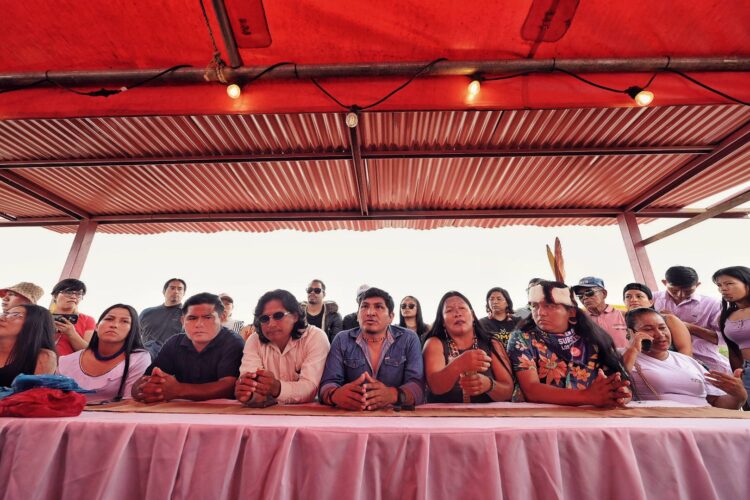
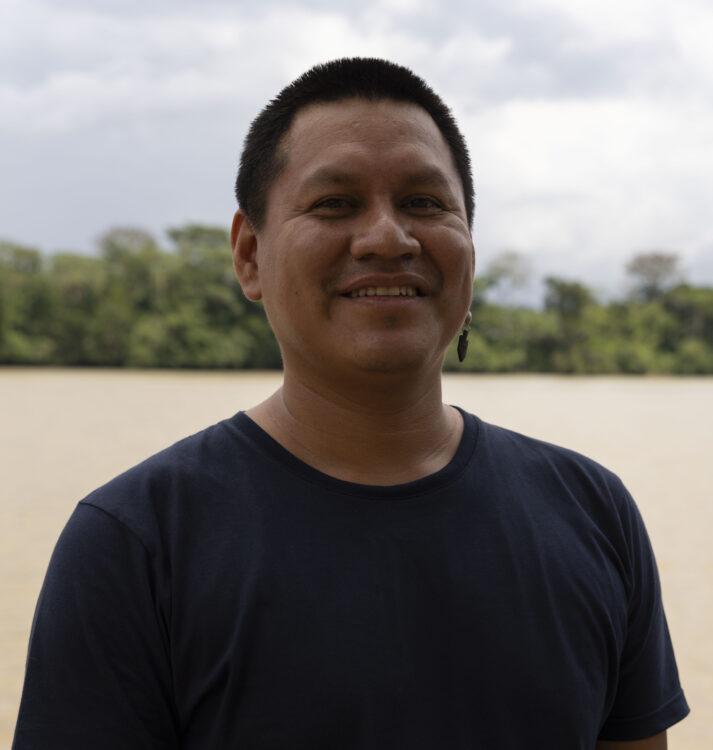
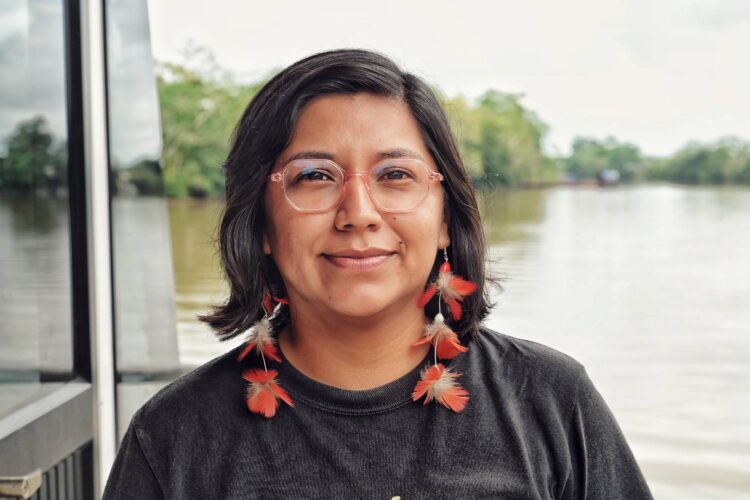
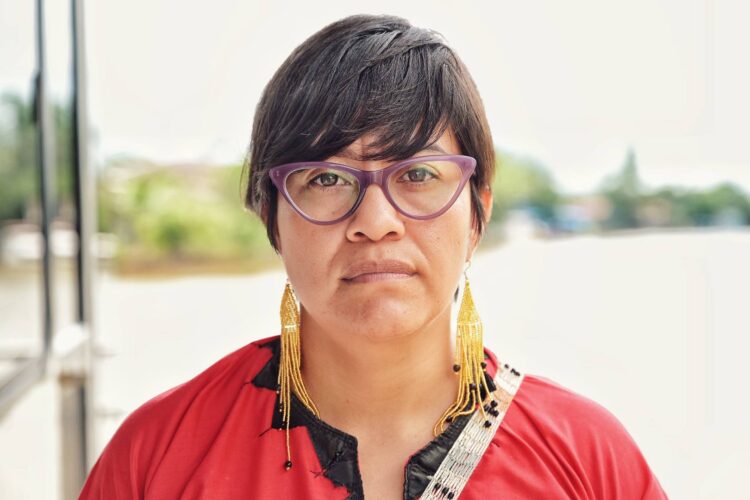
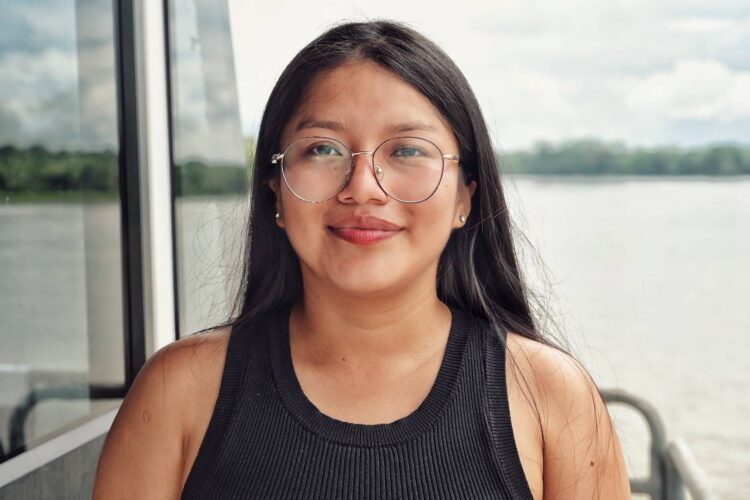
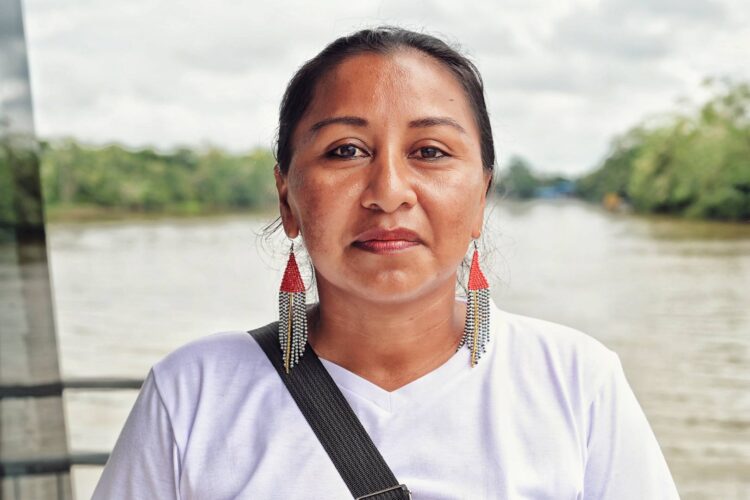
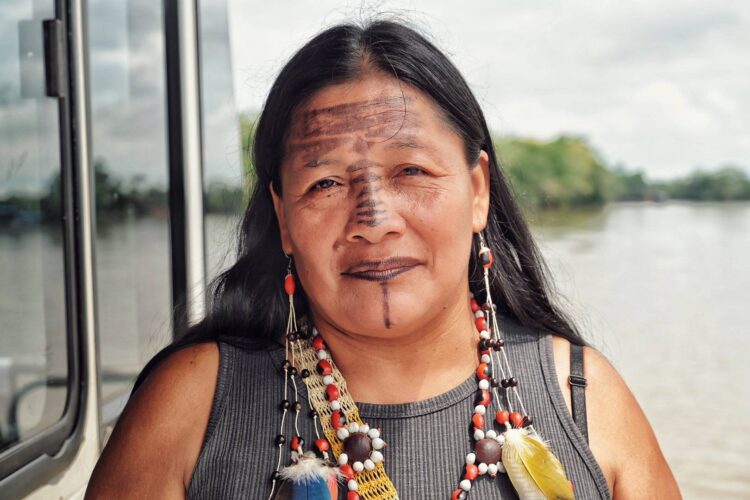
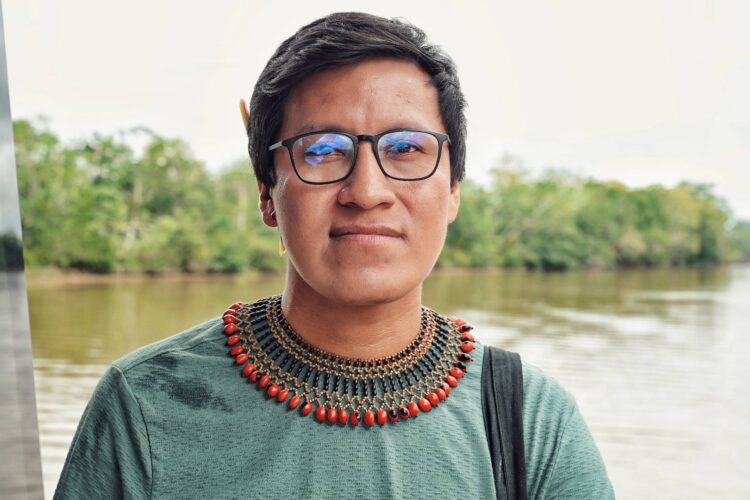
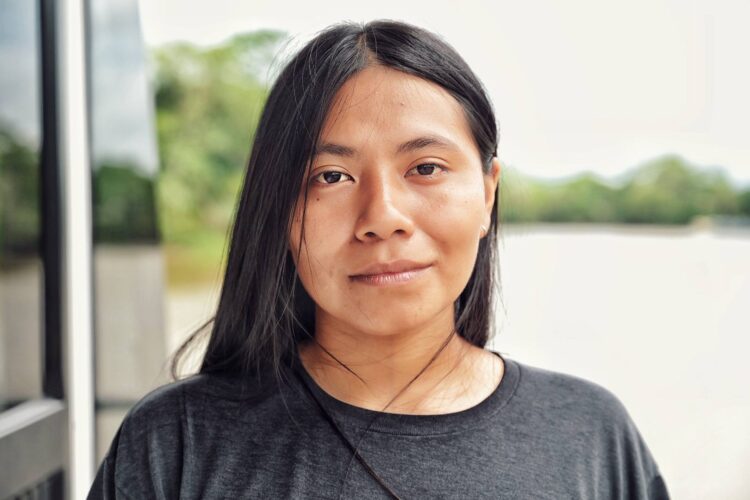
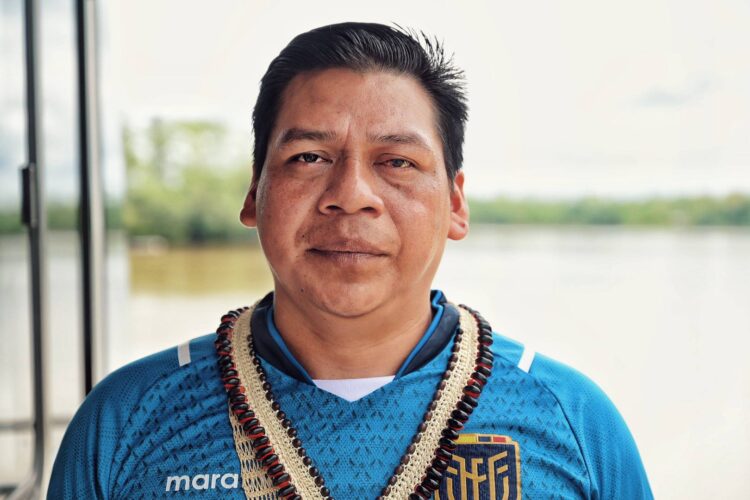
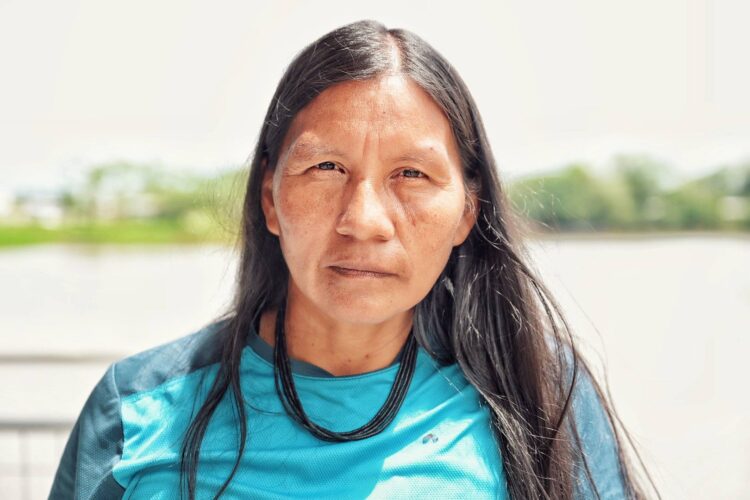
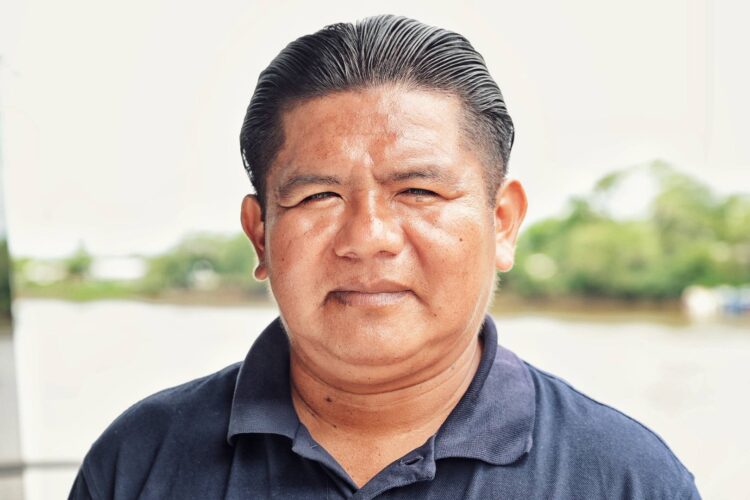
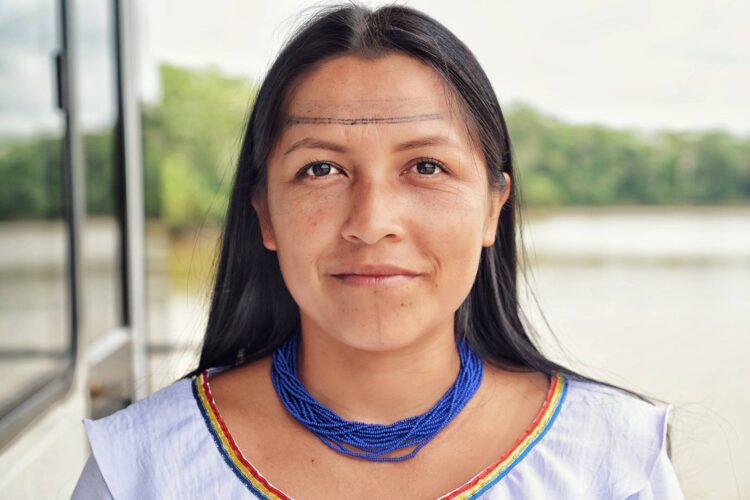
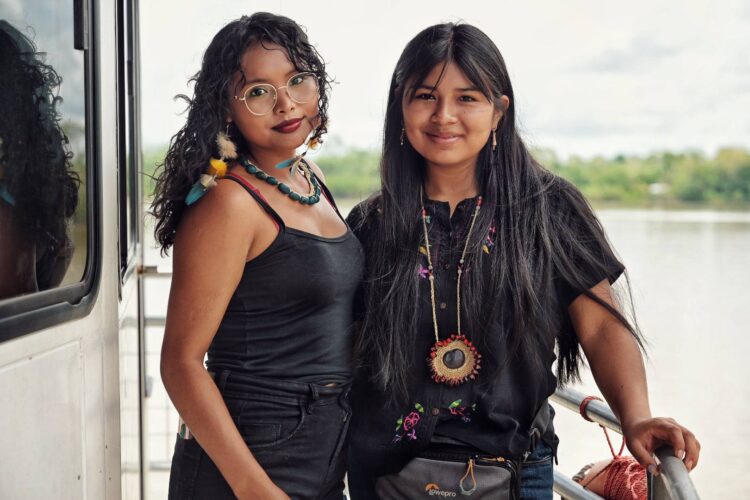
Over the coming days, the flotilla will travel through riverside communities, denouncing violations such as the 933 oil blocks across the Pan-Amazon that overlap with 441 ancestral territories and 61 protected areas.
A symbolic funeral for fossil fuels marked the beginning of the journey, criticizing “false energy solutions” and asserting Indigenous peoples’ right to self-determination over their territories.
Along the route, the flotilla will visit the “scars” left by oil spills and mining wounds — but also witness stories of resilience, such as ancestral science and community-based monitoring.
The violence of extractivism is a central focus: between 2012 and 2024, at least 2,253 environmental defenders were killed or disappeared in the region, 40% of them Indigenous.
The flotilla is dedicated to the memory of leaders like Efraín Fuérez, recently assassinated in Ecuador.
Kelly Guajajara warns:
“For us, Indigenous peoples, the climate crisis is not a distant problem. It’s the invasion of our lands, the contamination of our rivers, and the direct threat to our children’s lives. Defending the Amazon is not just a fight for nature — it’s a fight for our own existence. At COP30, we demand that our voices be heard and that real action be taken: to ban fossil fuel extraction once and for all.”
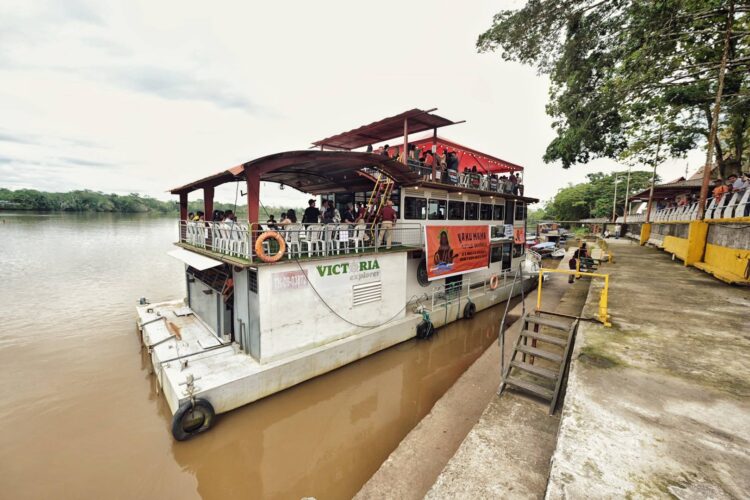
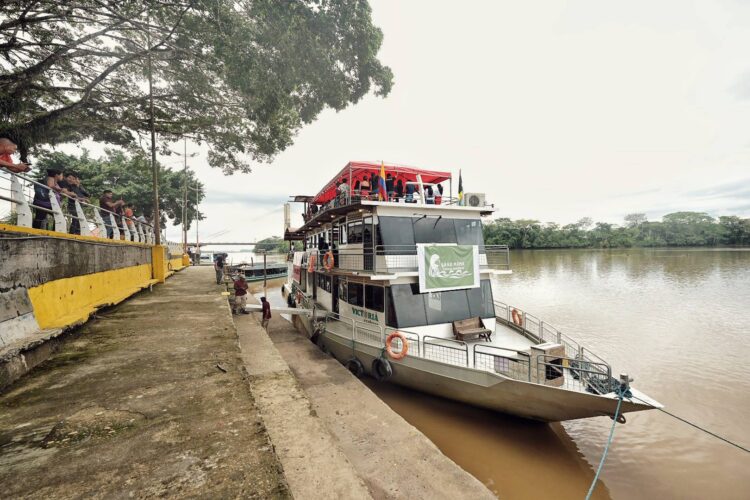
Demands for COP30 and Expected Impact
Arriving in Belém in early November, Yaku Mama aims to influence COP30 with concrete demands:
recognition of Indigenous territorial rights as an effective climate strategy;
direct funding without intermediaries (criticizing that 76% of Green Climate Fund resources go to third parties);
full Indigenous participation in energy transitions;
and integration of land defenders’ protection into global climate policies.
Alexis Grefa summarizes:
“This flotilla is not just a protest — it’s a living message sailing through the veins of the Amazon. The river itself shows us its scars: oil slicks, the wounds of mining. But in every community we visit, we also find resilience and solutions. We are not just bringing a problem to COP30; we’re bringing the answers that our peoples and the forest have cultivated for millennia.”
The collective statement reinforces:
“The flotilla is not just a journey — it’s a demand. We are not going to Belém to ask for space; we are going to demand that climate policies be built from the territories, with justice for those who care for life.”
Learn more about the flotilla’s travel route at:
https://amazonflotilla.quipa.org/ruta/

